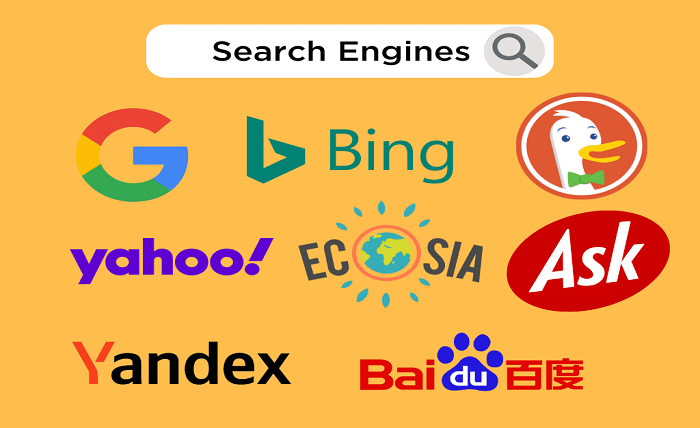
Introduction
In the digital era, search engines have become an indispensable tool for accessing information, connecting users with the vast ocean of online data. Whether you’re researching for academic purposes, shopping for products, or staying updated on current events, search engines serve as the gateway to the internet. They rank web pages, videos, and other content based on algorithms designed to deliver the most relevant results.
The Evolution of Search Engines
Search engines have come a long way since their inception. Early platforms like Archie and Gopher focused on indexing FTP files, but the creation of Yahoo and later Google transformed how we search. Google’s PageRank algorithm, which prioritizes links based on relevance and quality, set a new standard for search engine effectiveness. Today, search engines integrate machine learning and artificial intelligence to enhance user experience, making them smarter and more intuitive than ever.
How Search Engines Work
Understanding how search engines work can demystify why certain pages rank higher than others. They function through three main processes:
- Crawling: Bots or spiders scan the web to discover new or updated content.
- Indexing: Collected data is organized into a database.
- Ranking: Algorithms determine the relevance of a page to a user’s query.
Each search engine uses unique algorithms, but they all aim to provide the most accurate and timely information to users.
The Importance of Search Engine Optimization (SEO)
Search engine optimization (SEO) ensures your content is visible to users searching for relevant terms. By optimizing your website, you align with search engine algorithms, improving your chances of appearing at the top of search results. Key SEO practices include using keywords like “search engines” naturally, creating high-quality content, and ensuring fast loading times.
Different Types of Search Engines
Not all search engines are created equal; they cater to various niches and preferences. Here’s an overview:
- General Search Engines: Google, Bing, and Yahoo are examples, offering broad search capabilities.
- Specialized Search Engines: Platforms like DuckDuckGo prioritize privacy, while others like WolframAlpha provide computational answers.
- Vertical Search Engines: These focus on specific content types, such as YouTube for videos or Amazon for e-commerce.
Understanding these types can help users and businesses tailor their strategies for better visibility.
The Role of Artificial Intelligence in Search Engines
Artificial intelligence (AI) has revolutionized how search engines operate. With AI, search engines understand user intent more accurately, even for complex queries. Features like voice search, predictive text, and personalized results are driven by AI. Google’s BERT and MUM models, for example, leverage AI to process natural language and context, making search engines more user-friendly.
The Future of Search Engines
The future of search engines looks promising, with emerging technologies poised to make them even more powerful. Voice search and visual search are gaining traction, offering users new ways to interact with digital platforms. Additionally, the integration of blockchain technology might add a layer of transparency and security to search processes. As the internet grows, search engines will continue evolving to meet user needs.
Tips for Using Search Engines Effectively
To get the most out of search engines, consider these tips:
- Use specific keywords and phrases.
- Take advantage of advanced search operators (e.g., “site:” or “intitle:”).
- Regularly clear your browser cache for better performance.
- Explore niche search engines for specialized needs.
These practices can enhance your search experience, saving time and yielding more accurate results.
Conclusion
Search engines are the backbone of the digital world, connecting people with information and resources in real-time. Their evolution, powered by sophisticated algorithms and AI, ensures they remain relevant in an ever-changing landscape. By understanding how they work and optimizing content for visibility, individuals and businesses can harness the full potential of search engines.
FAQs
1. What are search engines?
Search engines are online tools that help users find information by indexing and ranking web content.
2. How do search engines rank websites?
They use algorithms that evaluate factors like relevance, keyword usage, backlinks, and user experience.
3. Why is SEO important for search engines?
SEO improves a website’s visibility in search results, making it easier for users to find relevant information.
4. What is the role of AI in search engines?
AI enhances search engines by understanding context, user intent, and delivering personalized results.
5. Are there search engines other than Google?
Yes, alternatives include Bing, Yahoo, DuckDuckGo, and specialized platforms like YouTube and Amazon.





